Abstract Paintings That Draw You In — Aníbal Vallejo Plays With Colors, Shapes and Much More In an Unforgettable Houston Show
Ever Evolving Figures and an Ever Challenging Creator
BY Alison Medley // 08.02.24Colombian artist Aníbal Vallejo's signature painting Untitled #679 is part of the Houston exhibition, "The Figure Unraveled: The Seen and Unseen."
There is something hypnotic, even beguiling about Aníbal Vallejo’s ambiguous, “open text” figures in his abstract paintings. Vallejo’s solo show titled “A Figure Unraveled: The Seen and The Unseen” runs through August 17 at Houston’s Art of the World Gallery. When I first viewed the signature painting for the show, Untitled #679, it draws you in, leaving an indelible mark on your psyche. You do not soon forget it.
Vallejo’s work can capture you in an ethereal way — taking you into a visual realm where figures become abstractions amid fields of indigo blue and lavender.
In Untitled #679, the figure of an enigmatic woman unfolds before your eyes. She appears deep in contemplation or ennui, as though she was floating on an iceberg of midnight blue, juxtaposed against a sphere of azure. You want to know more about her story, and it stays with you.
When I sat down with Aníbal Vallejo, he expressed how much he wanted to leave viewers of his paintings with an alluring, thoughtful narrative that is waiting to unfold. The figures in his paintings are ever evolving. They extend to another sphere of abstraction.
“In Untitled #679, the woman is not resting on a bed, she’s laying down on a block of color,” Vallejo notes. “I am pushing the figure to the limit. Sometimes you can see the changes are out of place or proportion or almost disjointed. There is no formal configuration. It is an abstract way to see the world.”
Aníbal Vallejo and Color Power
Vallejo’s use of color blocking and abstractions in his series “A Figure Unraveled” inspires viewers to create their own narrative in an open-ended way. In Untitled #598, Vallejo’s sky blue brushstrokes are harmoniously contrasted with hues of violet, connected by a distinctive thread of embroidery that traces the visage of a sensual woman.
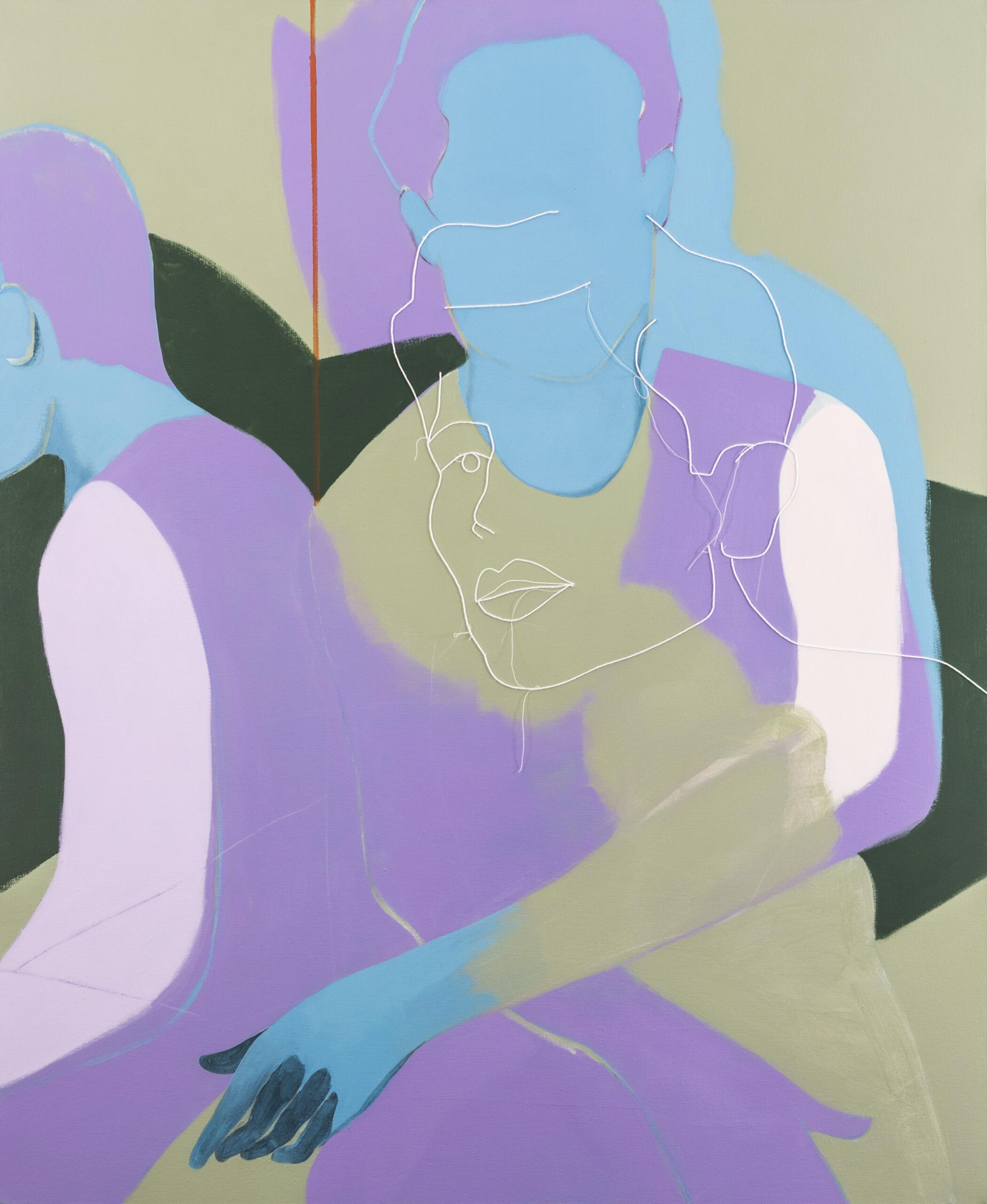
“The use of color in my painting is something profoundly personal,” Vallejo tells PaperCity. “It cannot be controlled. There is another intention to connect the background and the form. I try to blend them. There are two different worlds in the same painting.
“In a typical painting, you have the subject or object in front and then this subject is in a landscape. In my paintings, I try to blend this work together in an abstract way.”
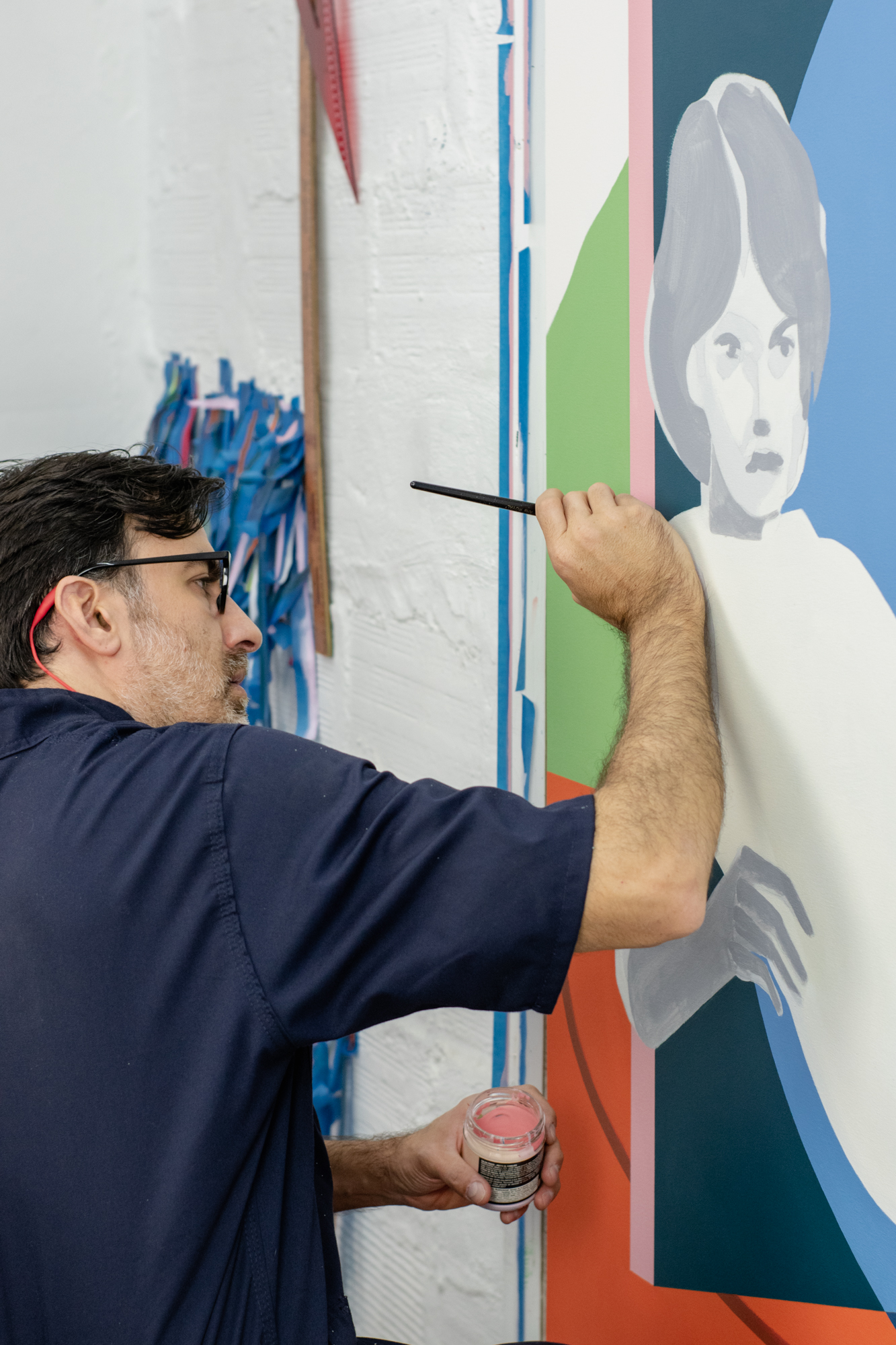
Vallejo’s life as an artist is much like his open-text paintings where a thread of inventiveness and curiosity runs through the chapters of his artistic evolution. A native of Medellín, Colombia, Vallejo studied fine arts at the University of Antioquia and fashion design at the Colombian College of Design. Vallejo trained as a painter in Italy, England and Spain. His influences are Francis Bacon, David Hockney, Matisse and Picasso.
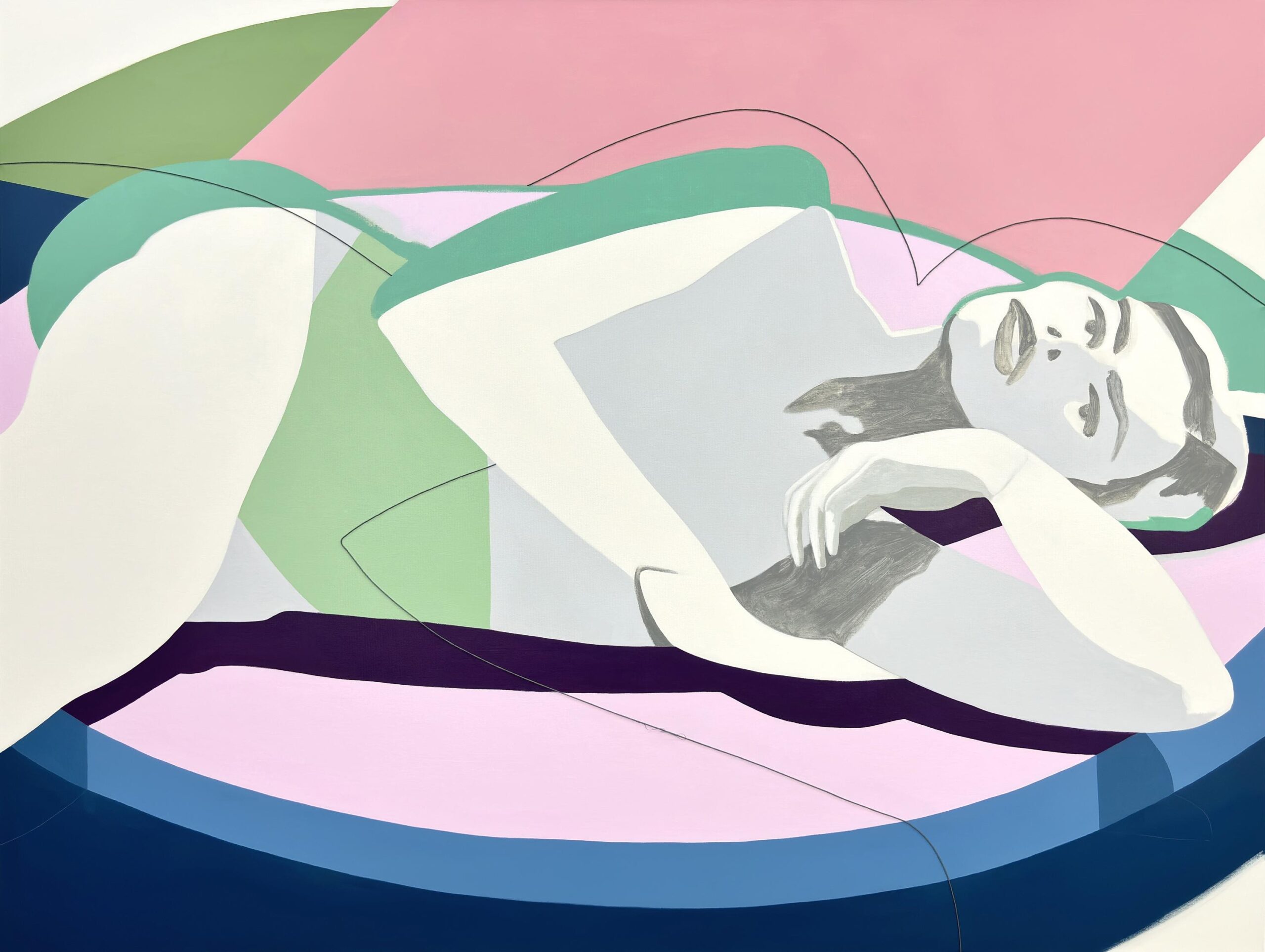
Weaving the thread of embroidery into his paintings is an artistic process that helps connect the layers of color with the lines of the drawing, Vallejo adds.
“The thread is my drawing part,” he says. “I replace the line of the brush stroke with this material, this thread. When I embroider this thread into my work, I add a tri-dimensional aspect to my painting. It adds language to my painting. I try to connect those blocks of colors also through the thread. For me, the use of the thread is very personal.”
Paintings That Are Alive
Running through Vallejo’s paintings is a current of unmistakable energy defined through a luminous color palette and his embrace of imperfections.
“For me, the painting is alive,” Vallejo says. “I love imperfections in life. It’s intentional to keep a mistake in the painting, because it works within the composition. It’s an abstraction of the body, the form. So these paintings are a reflection of my life, my thoughts. The way I see my life. These imperfections resemble beauty.”
It is Vallejo’s love of imperfections that elevates him as a contemporary artist, according to Art of The World Gallery’s senior art advisor Mauricio Sampogna.
“There are architects and painters, like Aníbal, who have sharpened their eyes to imperfections,” Sampogna says. “Aníbal is very intentional, very intellectual, very purposeful. Everything he does has the end goal of insight.
“He looks at it in a unique way as he progresses through the piece — something more emotional than intellectual.”
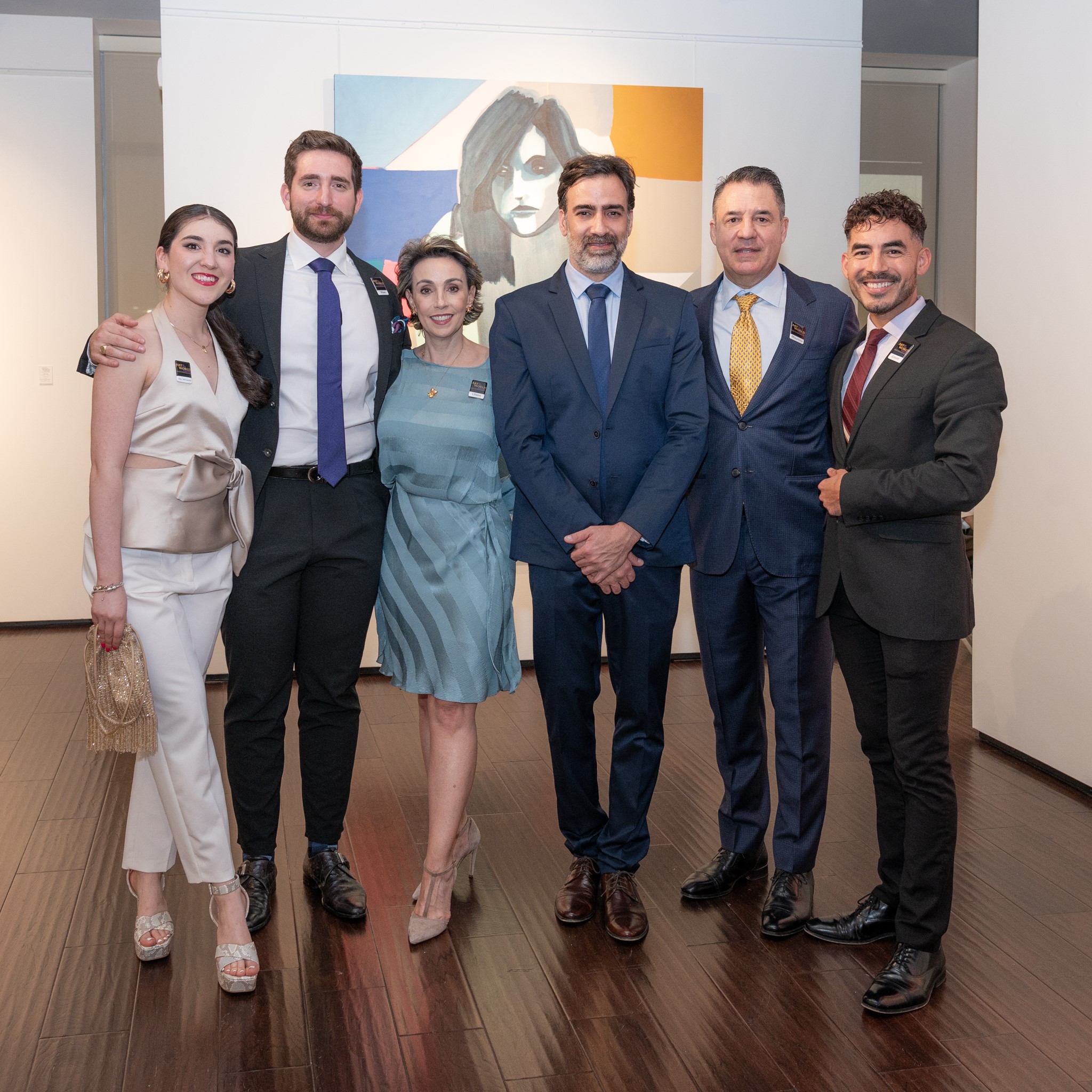
When Vallejo begins a painting, he knows the starting point, but the piece navigates its own flow and completion
“At the beginning of a painting, I have an idea — the idea, colors and composition — and this always changes,” Vallejo says. “It is not a static object. It is very capricious. I know where to start the painting, but I do not always know how to finish it. Sometimes I must let the painting rest for a while in my studio, and then start on another painting.”
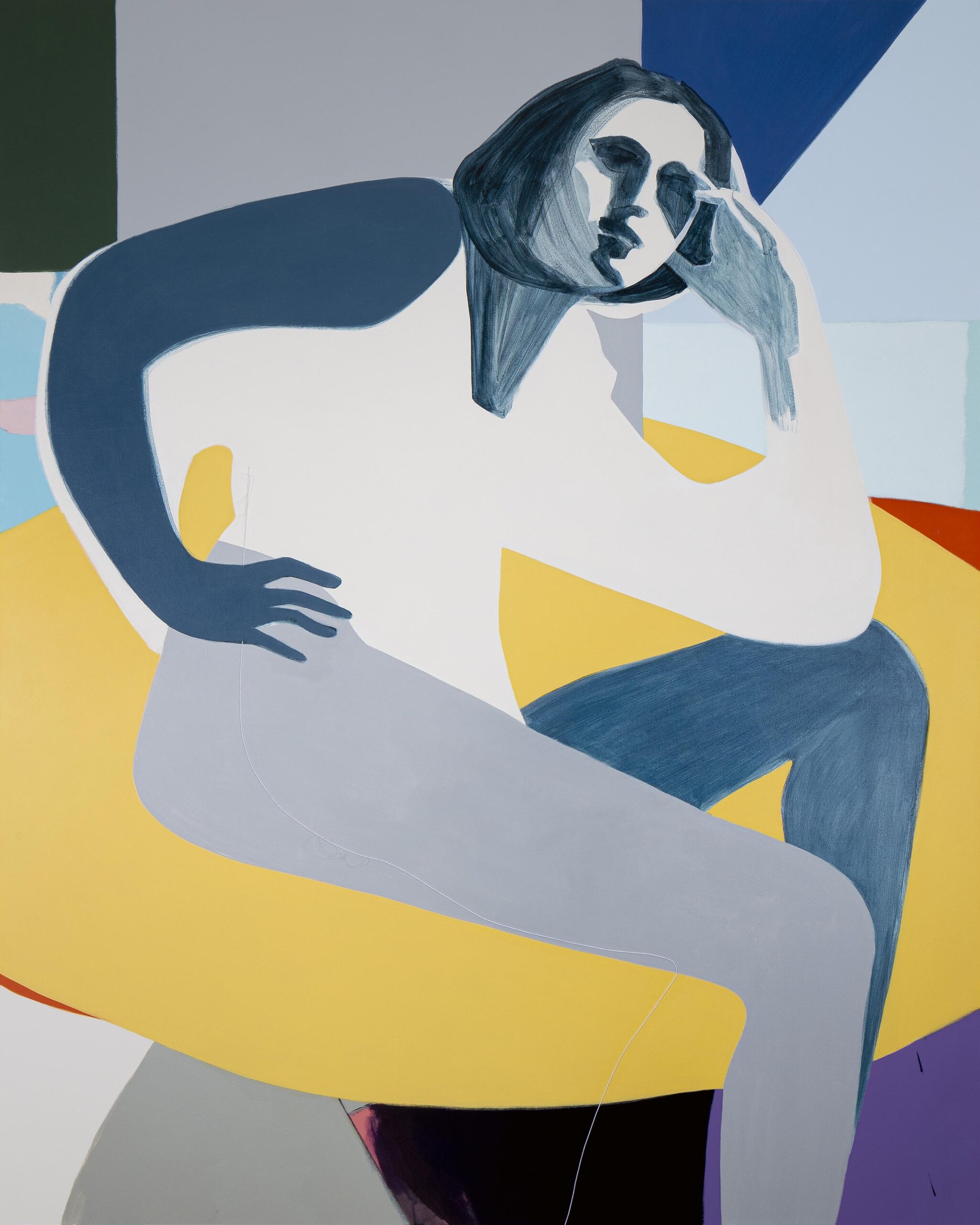
In his next chapter as an artist, Vallejo plans to delve into creating more tri-dimensionality through sculptures and abstract paintings.
“I would like to work with small, formative sculptures,” he says.”It feels like the next step. I feel like I must follow this idea. I want to go further, push the figures to abstraction. That’s the new idea. It is very exciting. I need to renew, reset every time when I finish a series.”
Vallejo’s exhibition “The Figure Unraveled” is on view at Houston’s Art of The World Gallery through August 17.
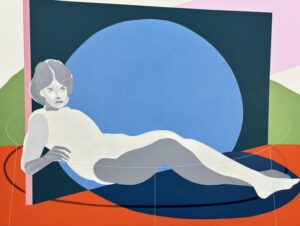





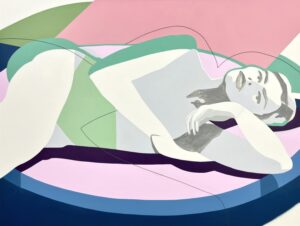
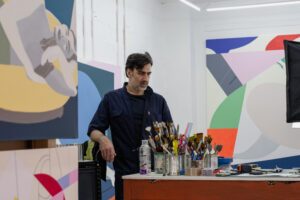
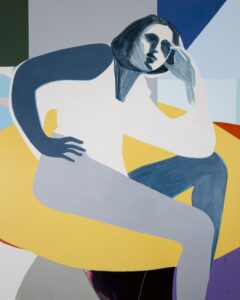

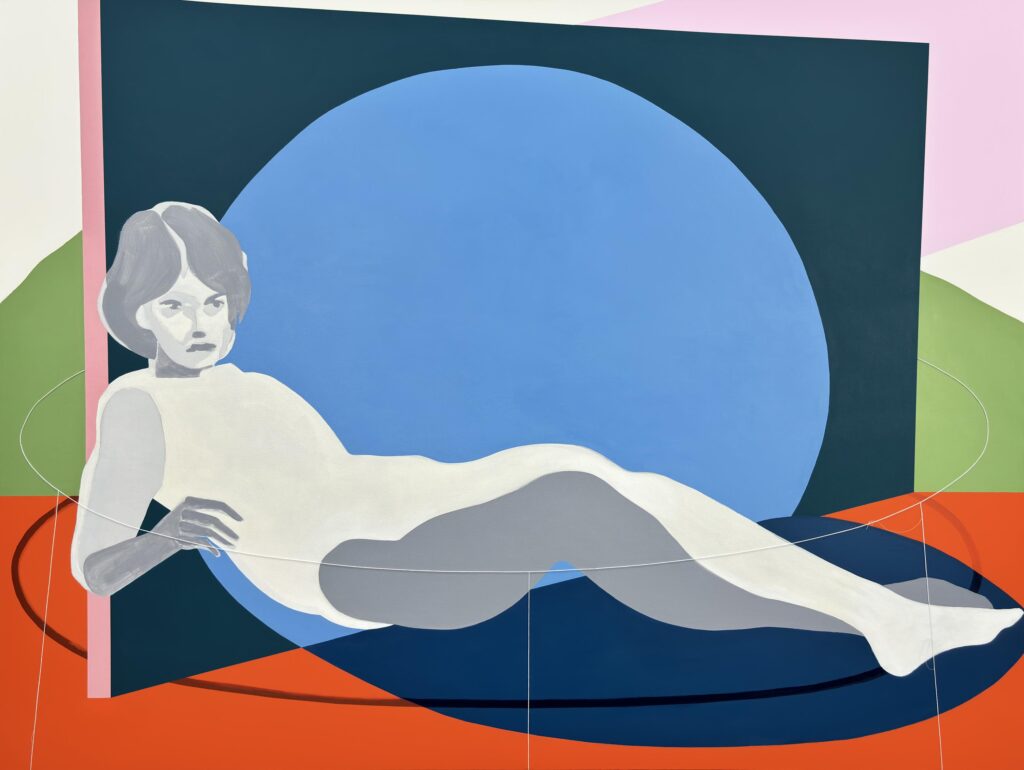
![Aníbal Vallejo working on"The Figure Unraveled" in his Medellín, Colombia studio. [Credit: Valentina Espinosa]](/wp-content/uploads/2024/07/VALLEJO_Studio-3-682x1024.jpg)
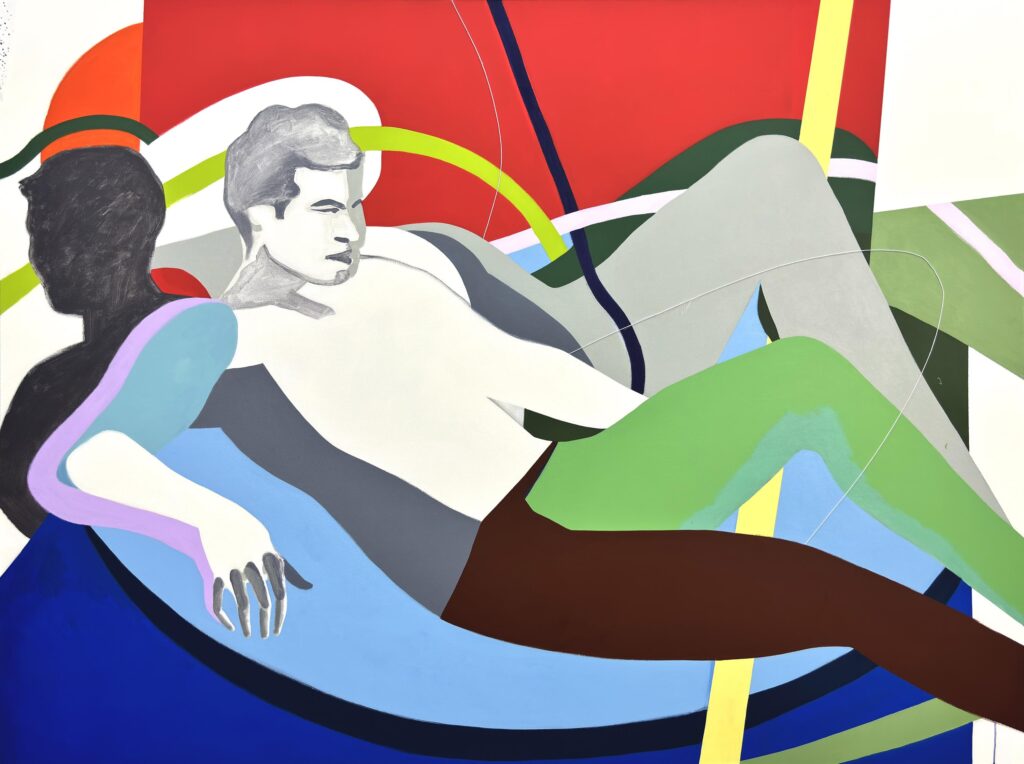
![Maria Fernanda Zapiain, Mauricio Sampogna, Liliana Molina, artist Anibal Vallejo, Mauricio Vallejo, Josue Salazar [Credit: Paul Davis]](/wp-content/uploads/2024/07/Maria-Fernanda-Zapiain-Mauricio-Sampogna-Liliana-Molina-artist-Anibal-Vallejo-Mauricio-Vallejo-Josue-Salazar-1024x1024.jpg)
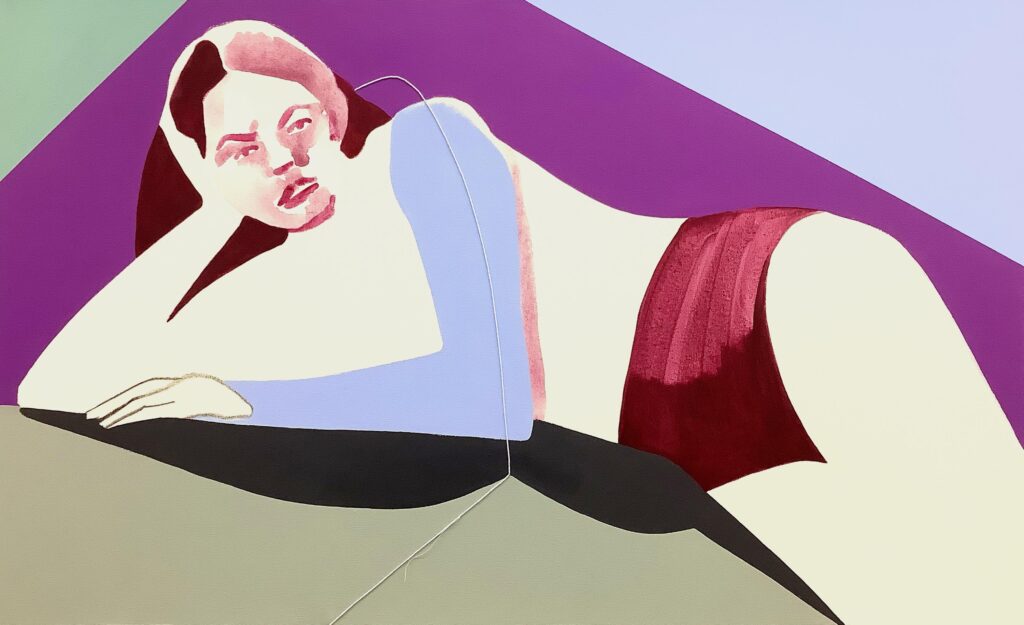

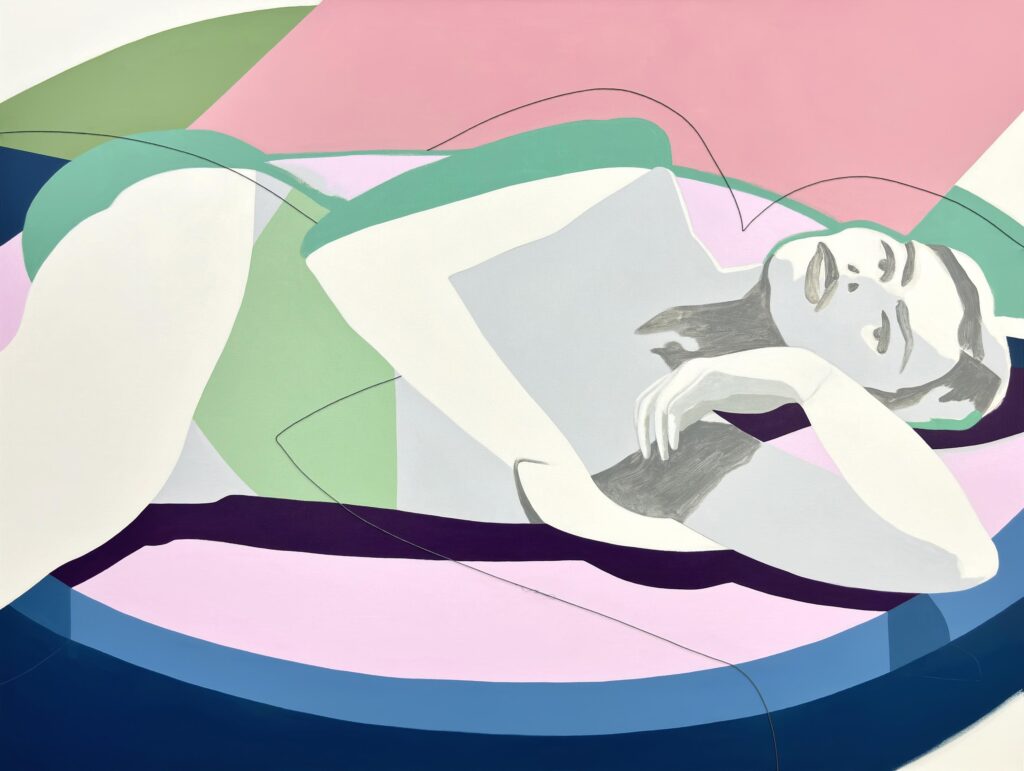


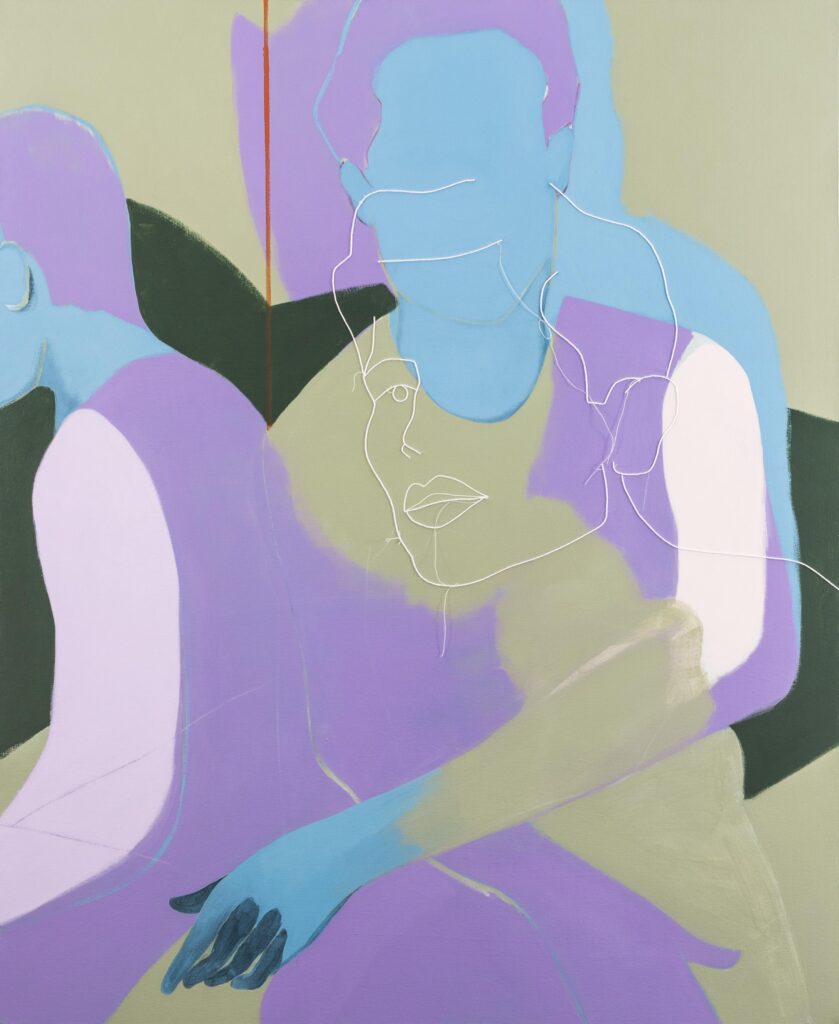









_md.jpeg)


